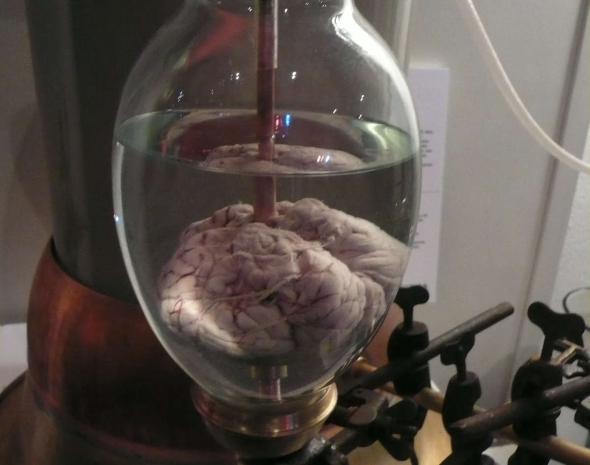
Breaking News
 Calling Dr. Grok. Can AI Do Better than Your Primary Physician?
Calling Dr. Grok. Can AI Do Better than Your Primary Physician?
 Episode 485 - The Dark Legacy of Dick Cheney
Episode 485 - The Dark Legacy of Dick Cheney
 Frugal Friday: 17 Ways to "Use It Up"
Frugal Friday: 17 Ways to "Use It Up"
 Cristiano Ronaldo Praises Donald Trump as a Leader Capable of Changing the World...
Cristiano Ronaldo Praises Donald Trump as a Leader Capable of Changing the World...
Top Tech News
 HUGE 32kWh LiFePO4 DIY Battery w/ 628Ah Cells! 90 Minute Build
HUGE 32kWh LiFePO4 DIY Battery w/ 628Ah Cells! 90 Minute Build
 What Has Bitcoin Become 17 Years After Satoshi Nakamoto Published The Whitepaper?
What Has Bitcoin Become 17 Years After Satoshi Nakamoto Published The Whitepaper?
 Japan just injected artificial blood into a human. No blood type needed. No refrigeration.
Japan just injected artificial blood into a human. No blood type needed. No refrigeration.
 The 6 Best LLM Tools To Run Models Locally
The 6 Best LLM Tools To Run Models Locally
 Testing My First Sodium-Ion Solar Battery
Testing My First Sodium-Ion Solar Battery
 A man once paralyzed from the waist down now stands on his own, not with machines or wires,...
A man once paralyzed from the waist down now stands on his own, not with machines or wires,...
 Review: Thumb-sized thermal camera turns your phone into a smart tool
Review: Thumb-sized thermal camera turns your phone into a smart tool
 Army To Bring Nuclear Microreactors To Its Bases By 2028
Army To Bring Nuclear Microreactors To Its Bases By 2028
 Nissan Says It's On Track For Solid-State Batteries That Double EV Range By 2028
Nissan Says It's On Track For Solid-State Batteries That Double EV Range By 2028
IARPA Wants Human-Like Robot Brains

On Monday, while most of us were groggily returning to work from a second long weekend in a row, the Intelligence Advanced Research Projects Activity (IARPA) was looking for brains. Specifically, robot brains. Their "Request for Information for Neurally Inspired Computing Principles," posted online at FedBizOpps, asks computer scientists and neuroscientists to answer at least one of four questions about learning, memory, timing, and coordination. The goal: anticipate next-generation computers.
IARPA is the far-future research projects arm of America's intelligence agencies, much like DARPA is for the Pentagon. The immediate applications of the tech aren't always clear, so the agencies try and fund a bunch of blue-sky research to figure out where the technology is going to go. For example, here's one of the four questions IARPA is asking people to answer:

 Carbon based computers that run on iron
Carbon based computers that run on iron

